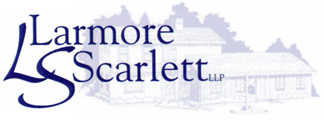We are circling back to our March 31 post and the discussion of turning down gifts, bequests or inheritances. As we said, it is possible. There is no law that says you must accept a gift, that you must accept your deceased uncle’s bequest of a painting you suspect was looted by the Nazis or the trust fund set up by your robber baron great-grandfather.
Say you have inherited a painting that you strongly suspect was part of a collection confiscated by the Nazis during World War II. You may have a moral objection to its provenance, or you may not want the legal obligation that could come with the gift. You can say no.
There are tax consequences, though. If you want to renounce the bequest and avoid inheritance tax, you must disclaim the gift, bequest or inheritance within nine months of the testator’s death.
The state still wants its tax, of course, so Pennsylvania law treats your renunciation as if you died before the testator. The next-named heirs or the remaining heirs get the inheritance, and they must pay any taxes due. It’s important to remember that the inheritance — the painting or the money or whatever — is considered inheritance, not a gift. The gift tax does not apply.
The federal government has its own rules, and the IRS has divided renunciations into two basic categories: disclaimers and qualified disclaimers. They are essentially the same concept, but the procedures are different depending on the date the will was made or the trust was established.
While a disclaimer closely resembles the Pennsylvania disclaimer, a qualified disclaimer must meet certain criteria. For example, it must be in writing, signed and filed within nine months of the testator’s death; and, once executed, it is irrevocable and unqualified. Once renounced, the inheritance is entirely out of your control.
If nothing else, this all shows us that the advice of an estate planning and probate attorney may be necessary even for the recipients of bequests and inheritance. You may just cash the check or drive the car away, you may say you want nothing to do with the stuff — just remember that there may be tax implications.
Source:
West’s Pennsylvania Practice, Probate & Estate Administration
American Institute of CPAs, “Do I have to accept a bequest I don’t want?” accessed March 30, 2015

